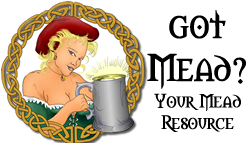Hey all.
Asked this on homebrewtalk.com, and think it was Medsen that said my water would be okay. But, checking in here to see if anyone has any further info on bicarbonate.
My water here is very high in bicarbonate. 386 ppm. That's pretty damned high. The water tastes fine though, after filtering.
Seems to me, that bicarbonate should help buffer the pH and stop it from going too low. But I don't want any chalky flavors or anything. So, what do you guys think? Should I dilute with distilled water or just run with it as is? Using spring water's not really a different option as all of the water here is high in bicarbonate, spring water included.
Thoughts?
Asked this on homebrewtalk.com, and think it was Medsen that said my water would be okay. But, checking in here to see if anyone has any further info on bicarbonate.
My water here is very high in bicarbonate. 386 ppm. That's pretty damned high. The water tastes fine though, after filtering.
Seems to me, that bicarbonate should help buffer the pH and stop it from going too low. But I don't want any chalky flavors or anything. So, what do you guys think? Should I dilute with distilled water or just run with it as is? Using spring water's not really a different option as all of the water here is high in bicarbonate, spring water included.
Thoughts?





